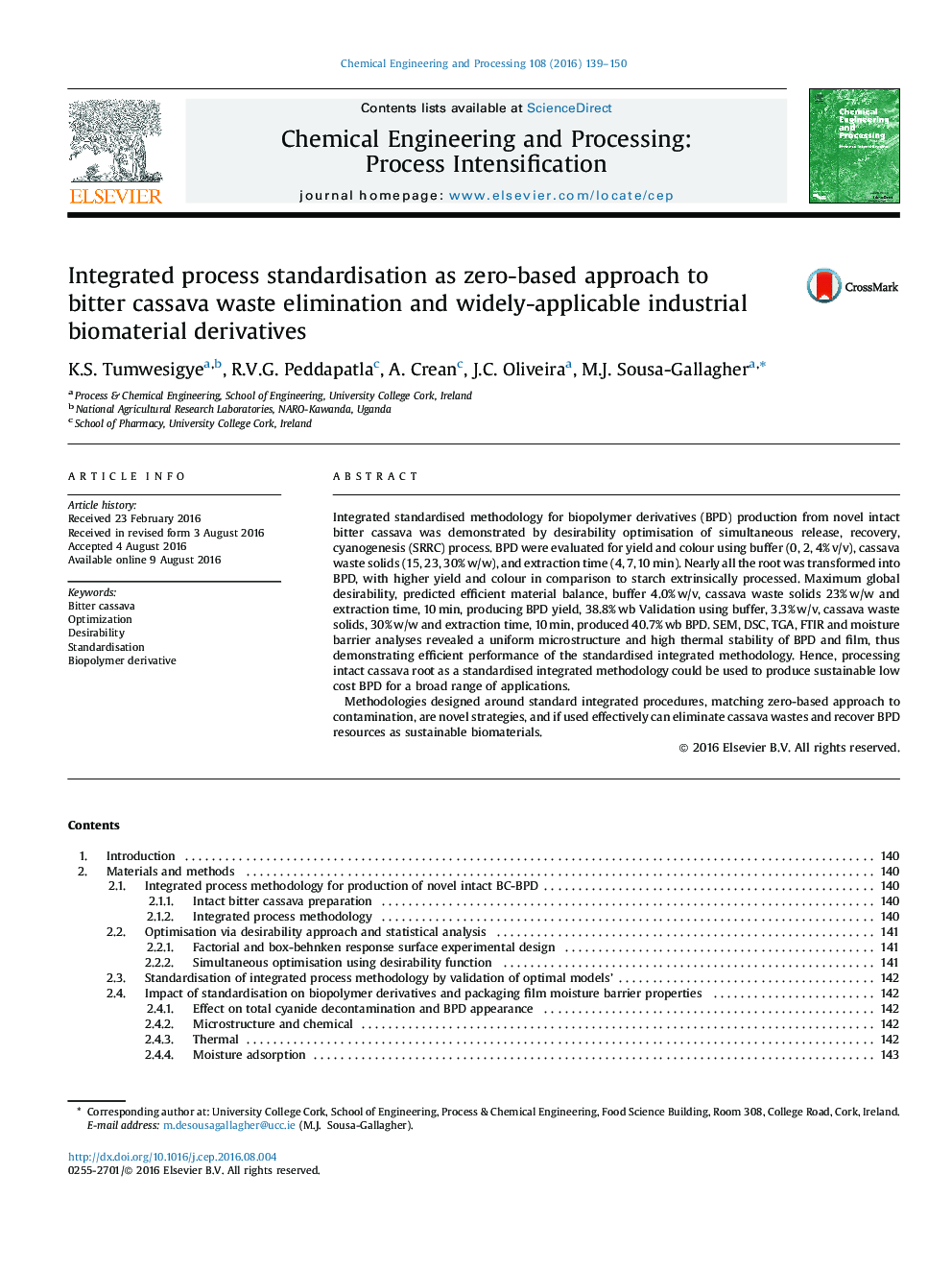| Article ID | Journal | Published Year | Pages | File Type |
|---|---|---|---|---|
| 687040 | Chemical Engineering and Processing: Process Intensification | 2016 | 12 Pages |
•Integrated methodology for production of intact Bitter-Cassava-BioPolymer Derivatives.•Optimal processing parameters which defines the global desirability.•Standardised methodology by validation of optimal BC-BPD.•Standardisation impact on BC-BPD’s physical and chemical properties.•Sustainable, low-cost, efficient BC-BPD production for broad range of applications.
Integrated standardised methodology for biopolymer derivatives (BPD) production from novel intact bitter cassava was demonstrated by desirability optimisation of simultaneous release, recovery, cyanogenesis (SRRC) process. BPD were evaluated for yield and colour using buffer (0, 2, 4% v/v), cassava waste solids (15, 23, 30% w/w), and extraction time (4, 7, 10 min). Nearly all the root was transformed into BPD, with higher yield and colour in comparison to starch extrinsically processed. Maximum global desirability, predicted efficient material balance, buffer 4.0% w/v, cassava waste solids 23% w/w and extraction time, 10 min, producing BPD yield, 38.8% wb Validation using buffer, 3.3% w/v, cassava waste solids, 30% w/w and extraction time, 10 min, produced 40.7% wb BPD. SEM, DSC, TGA, FTIR and moisture barrier analyses revealed a uniform microstructure and high thermal stability of BPD and film, thus demonstrating efficient performance of the standardised integrated methodology. Hence, processing intact cassava root as a standardised integrated methodology could be used to produce sustainable low cost BPD for a broad range of applications.Methodologies designed around standard integrated procedures, matching zero-based approach to contamination, are novel strategies, and if used effectively can eliminate cassava wastes and recover BPD resources as sustainable biomaterials.
Graphical abstractFigure optionsDownload full-size imageDownload as PowerPoint slide
